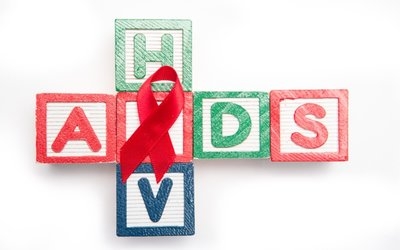What Should You Be Aware Of When It Comes To STIs?
Sexually transmitted infections, or STIs, are passed between people during sexual contact, and they’re increasing in prevalence. They can be passed during vaginal, anal and oral sex, as well as mere genital contact with an infected person. The only way to ensure that you’re limiting yourself from infections is to use a condom every time you have sex. There are many categories for STIs. Bacterial infections include syphilis, gonorrhoea and chlamydia. Viral infections include HIV, hepatitis B, herpes and genital warts. Fungal infections include thrush, and parasitic infections include public lice and trichomonas vaginalis. These all have a variety of symptoms to look out for, and vary in terms of severity to your health. In women, the symptoms include abnormal vaginal discharge, genital lesions, bleeding between periods or after sex, and lower abdominal pain. In men, these symptoms involve discharge from the penis, pain or discomfort when passing urine, genital lesions and testicular pain. However, not all STIs carry symptoms, so you could be infected and not realise. This is why getting regular check-ups is so vital to your sexual health – they help you spot infections you may not be aware of.
Chlamydia
Chlamydia is the most common bacterial STI in the UK, and regularly infects people under 25 yrs. Both men and women contract this infection, and there are rarely symptoms which is why it spreads so easily. This is a particularly dangerous infection to have left untreated, as it could lead to serious long-term problems in the reproductive tract and abdomen, potentially leaving people infertile.
HIV
HIV stands for Human Immunodeficiency Virus. It infects and gradually destroys the immune system, lowering the victims protection against cancers and infections. If it is left untreated, HIV will damage the immune system and develop into AIDS. This stands for Acquired Immune Deficiency Syndrome, and is a collection of illnesses which is caused by an ‘acquired’ virus. You can’t develop AIDS unless you are already HIV Positive. There may be no symptoms in someone who is living with HIV in the early stages, but eventually the individual will need medication to control it.
Genital warts
Most people who get the virus which develops into genital warts don’t show any specific symptoms, and this is why the virus remains un-diagnosed for a long time. But if there are symptoms present, they show as small white spots or lumps inside and around the vagina or anus. These are easily treated, but usually require a number of treatments.
Gonorrhoea
Gonorrhoea is found in both men and women, and can affect the anus, genitals, rectum and throat. Around half of the women infected with this disease and around 90 per cent of men show symptoms, which is often a thin, watery discharge from the vagina or penis, and pain when urinating. A simple test or swab can diagnose this infection, and it can be treated with antibiotics. However, if complications occur, further treatment may be needed.
Syphilis
Syphilis usually begins with a small sore on the penis or vagina, and up to six months after the initial symptoms develop, you may experience aching and shivering, or other flu-like symptoms. It’s usually detected with a blood test and can be treated easily in the early stages. However, in later stages, it can cause damage to the nervous system or heart that can be irreversible. Regular check-ups are vital in order to spot this early, as you may be spreading infection without realising.


Comments are closed.